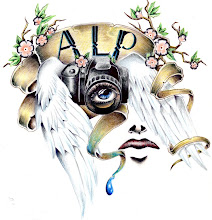They put you down and expect you to pick them up, or drain the life right out of you for their own gain. With toxic friends like these, who needs enemies?
Toxic friends stress you out, use you, are unreliable, are overly demanding, and don't give anything back. While a toxic friend doesn't have to lay claim to all of these charming characteristics, they do seem to bring on their nasty behavior on a consistent basis, as opposed to those of us who just have a bad day once in a while and take it out on some of the people we care about the most. I would say it's someone who, after spending time with them, makes you feel bad about yourself instead of good; someone who tends to be critical of you -- sometimes in a subtle way and sometimes not so subtle; a friend who drains you emotionally, financially, or mentally, and they're not very good for you.
You cross the line from helping a friend in need to helping a friend who is always needy when that friend is abusive. If your friend is asking for support, that's very different from someone who constantly asks for support and is constantly mean and abusive. These signs tell you someone is less friend, more foe. And not surprisingly, it's women who are more likely to be toxic than men. So when your gal pal turns sour and stays that way, you need to start taking control of the relationship if there's any hope of saving it.
You know you have a problem with someone when your nontoxic friends start telling you, "Every time you hang out with that person, you're in a bad mood." Or the phone rings, you see it's your toxic friend, and you conveniently go to the bathroom. But despite these warning signs, you don't do anything about it. Why? Because you're trapped.
One of the characteristics of a toxic friendship is that the good friend feels she can't extricate herself from the relationship. Whether it's on the phone, in person, or from the friendship entirely, you feel like you are trapped, you're being taken advantage of and you can't resolve the problem one way or another. Whether the feeling of entrapment has to do with history -- you've been friends with the person since a young age...or you feel she has no one else to turn to and you need to stand by her through thick or thin, you need to take action to help your friend, and yourself.
1) Recognize the toxicity - The first step is to recognize that the person is toxic, or at least that the relationship is toxic. They might not be a toxic friend to others but they are to you.
2) Take responsibility - By continuing a toxic friendship, you're allowing your friend to hurt you, but you're also hurting yourself. "You have to take some degree of responsibility for the situation. It's a pleaser personality -- you want people to like you, you want to get along, and it's hard to say no. But you can pay the price in one way by having toxic friends. So even though we want to help our friends and have them rely on us in troubling times, take responsibility for toxic friendships and how they make you feel.
3) Set boundaries - Make good boundaries for yourself. Start taking better care of yourself and make your own self-care more important than pleasing the toxic friend. Say no when she asks you for something that you don't want to give, and call her out when she is mean or critical to you.
4) Talk to your nontoxic friends - Talk to other people who may not have a vested interest in your toxic friendship. People who can give you an objective opinion regarding whether the friendship is salvageable and whether you can manage the toxic friend to neutralize the toxicity, or if you need to end the relationship.
5) Suggest professional help - A toxic friend might need professional help at some point to help her get her career, emotions, or family back on track. How do you approach such a touchy subject? If you point out to your friend how she is treating you and ask her to stop, and she continues to do it, you need to take it to the next level, Say to her, 'I know you are a good person, but maybe you want to seek help.' But keep in mind that if it has gone to that level, and a friendship is that toxic, it's going to be destroyed at some point anyway. Better you make an effort to help your friend address her issues.
6) End the friendship - It's difficult to end a friendship. Breaking up with anyone, whether it's a spouse, love relationship, or a friend, is not fun. It's even more important in this kind of context. In contrast to a love relationship in which you recognize you aren't compatible, this type of relationships is hurting you. It's bad enough when a person has to deal with a toxic friend firsthand but when the toxicity is impacting not you personally, but someone you love, like a spouse or a friend, it can be even harder. How do you handle it? As much as you want to jump in and help, sometimes patience is key.
Work Cited:
By Heather Hatfield
WebMD Feature
Sunday, July 21, 2013
Toxic Friends: Less Friend, More Foe
Posted by Amy Lavoie Photography at 5:11 PM
Subscribe to:
Post Comments (Atom)

0 comments:
Post a Comment